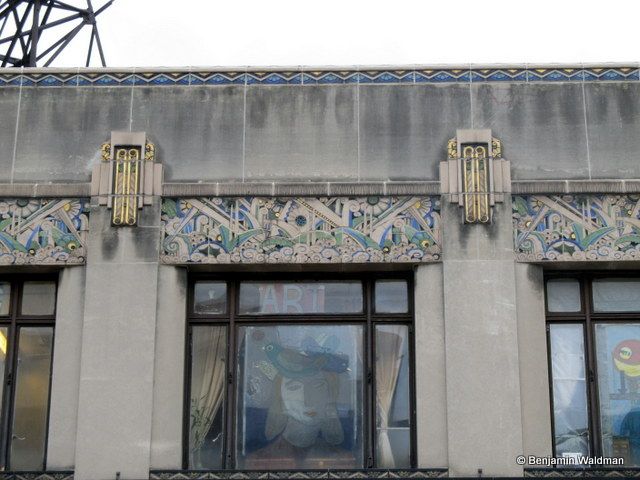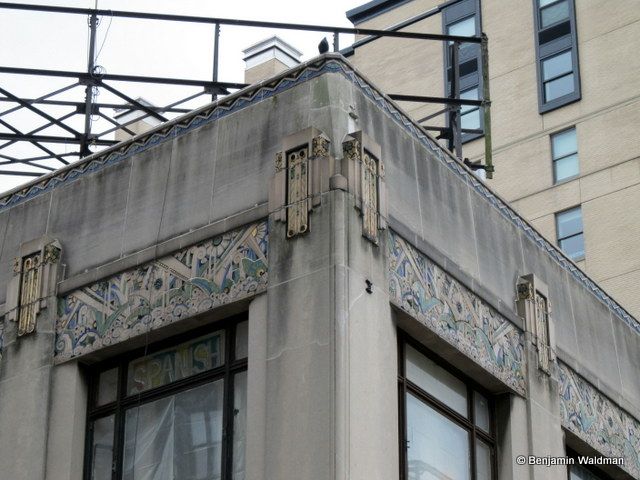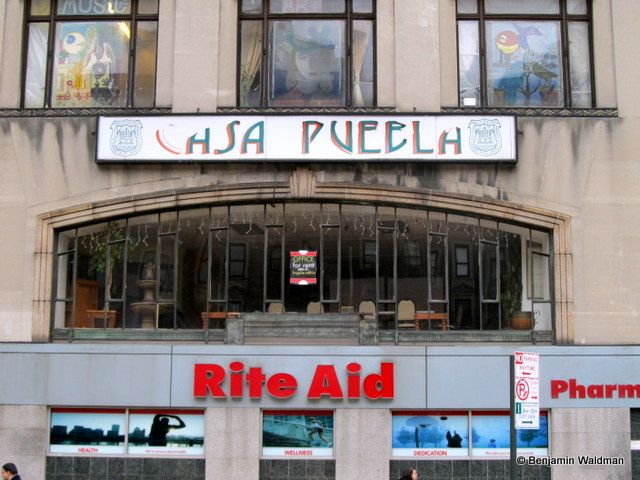

2710-2714 Broadway (located on the south east corner of Broadway and 104th Street) is one of the best examples remaining Art Deco commercial buildings on the Upper West Side. The building was constructed in 1930 by F. P. Platt & Brother and designed specifically for Horn & Hardart. The building is notable for its glazed polychrome Art Deco style terra-cotta ornaments and its large windows. It is possible that some of the interior elements remain hidden behind the current decorations.


Horn & Hardart was established in 1911 (as the New York subsidiary of a Philadelphia baking company). Joseph V. Horn and Frank A. Hardart realized that New York City was the perfect location to expand their waiterless restaurant. Their first “automat” opened in Philadelphia in 1902, and while not the first automat, their automats would become the embodiment of the waiterless restaurant. For those of us who are too young to have experienced the automat, especially at the height of its celebre, a photograph is worth a thousand words. The sleek, streamlined designed cases held the food waiting for customers to insert their nickel or dime and retrieve their meal. Automats were so successful because they offered reasonable pricing, a wide selection of good food, no wait, and no tipping. The lack of visible waiters, cooks, and other staff ultimately turned this utopian chain into a dystopia when they tried to unionize and secure better wages. (To read more about this, check out David Freeland’s Automats, Taxi Dances, and Vaudeville).
Horn and Hardart remained in the building until 1953. Since then other tenants in the building have included The New York Public Library, a pizza store, a coffee store, and a supermarket. Since 1995 Rite Aid has been located on the ground floor of the building, which was designated a New York City landmark in 2007.


